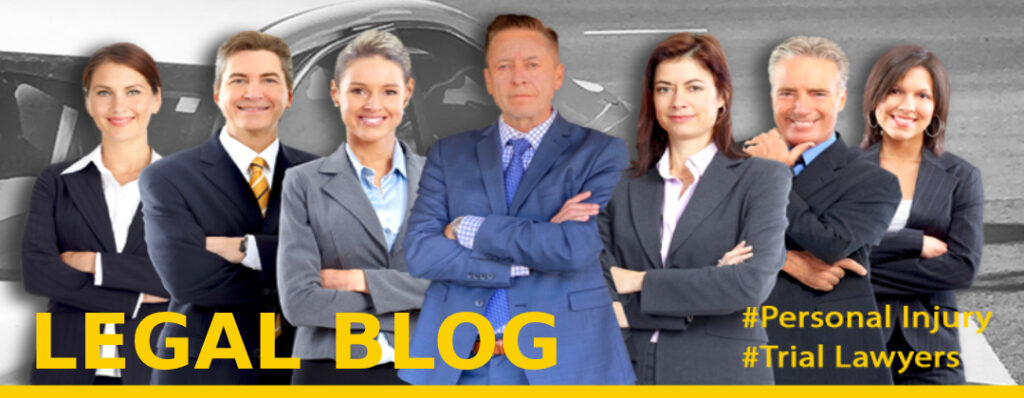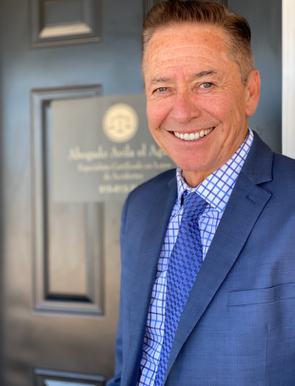A personal injury lawyer is a type of civil litigation lawyer who represents plaintiffs who express a physical or mental injury to another person, organization or organization for negligence or negligence. Lawyers specializing in personal injury are specialized in the law of tort. This applies to personal or civil errors or violations, including slander and action for malicious contract violations. The main purpose of the law is to reunite the injured party and to prevent others from committing the same crime.
Personal injury lawyers assist claimants in obtaining compensation for their losses, including loss of work capacity due to disability, illness and suffering, reasonable and foreseeable medical expenses, emotional distress, loss of life agreement or partnership, legal fees and attorneys’ fees to protect clients who are victims of insurance and legal systems.
A personal injury lawyer is a lawyer who provides legal services to individuals who claim to be physically or psychologically injured as a result of the negligence of another person, company, government agency or legal entity. Personal injury lawyers are particularly active in the area of tort law. Examples of frequently reported injuries include accidents due to falls and slips, road accidents, defective products, accidents at work and work errors. The term “trial attorneys” refers to personal injury lawyers, although many other types of lawyers with defense counsel and attorneys also appear in court and most personal claims claim that was decided without trial.
A lawyer specializing in personal injury should be able to apply the law in the jurisdiction where he works. In many states, they must submit to a written ethics review. Lawyers can take lawyer training courses (CLE) to learn about legal developments or new areas of practice.
In countries where lawyers are required to attend CLE, lawyers specializing in injury law may take CLE-related bodily injury courses, but this is not necessary. Some bars and law firms provide certification, including attorney certification. Accreditation is not required for personal injury training, but may help a lawyer provide potential clients with knowledge in this area. Not all US bars are certified under the Personal Injury Act.
In some states, such as New Jersey, lawyers may be licensed litigators. This testimony is available to complainants and defense counsel. Some states, such as Arizona, prohibit the use of “specialist” or “specialist” terms with lawyers licensed by the State Legal Legal Association in a given jurisdictional area. This certification replaces the “Personal Injury” law.

Show your empathy and content marketing experience for lawyers who are hurting themselves. The wrongs of others are frightening, disturbing and often unexpected. The more you design the justice process, the more likely you are to convert a website browser into a client. Those who are interested in your ministry will have many questions and fears.
Create articles, blogs, and resources that treat them. Any question that you answer as a measure and the fact that you are temporarily quiet brings you closer to legal advice. Content marketing includes things like blogs, landing pages, videos, white papers, case studies, info graphics, and other helpful elements that come with your marketing department.
CONCLUSIONS
We think it is very important that victims of personal injury choose the right lawyer for their case. This involves ensuring that lawyers have expertise in the area of accidents and a good personal fit. However, many cases are dismissed because the potential client seems to be trying to choose the lawyer based on the comments received.
REFERENCES
* Lowenthal, Werner (1981). “Continuing Education for Professionals: Voluntary or
Mandatory?”. The Journal of Higher Education. 52 (5): 519–538.
*A Concise Guide to Lawyer Specialty Certification” (PDF). ABA Standing Committee on
Specialization. American Bar Association. June 2007. Retrieved 3 December 2017.
*Board on Attorney Certification”. New Jersey Courts. New Jersey Judiciary. Retrieved 3
December 2017.
*Certified Specialists”. State Bar of Arizona. Retrieved 3 December 2017.
* Nelson, Robert L. (1988). Partners with Power: The Social Transformation of the Large Law
Firm. University of California Press. pp. 174–175. ISBN 0520058445. Retrieved 3 December
2017.
* Larson, Aaron (11 August 2014). “Catastrophic Personal Injury.ExpertLaw.com. Retrieved 3
December 2017.
* Goodman, Peggy. “Initial Interview with a Potential Client”. LexisNexis. Relx Group.
Retrieved 21 January 2008.
* Coffee, John C. (May 1986). “Understanding the Plaintiff’s Attorney:
*The Implications of Economic Theory for Private Enforcement of Law through Class and
Derivative Actions”. 86 (4): 669–727. JSTOR 1122577.
*Danzon, Patricia M. (1983). “Contingent Fees for Personal Injury Litigation”. The Bell Journal
Of Economics. 14 (1): 213–224. JSTOR 3003548.




